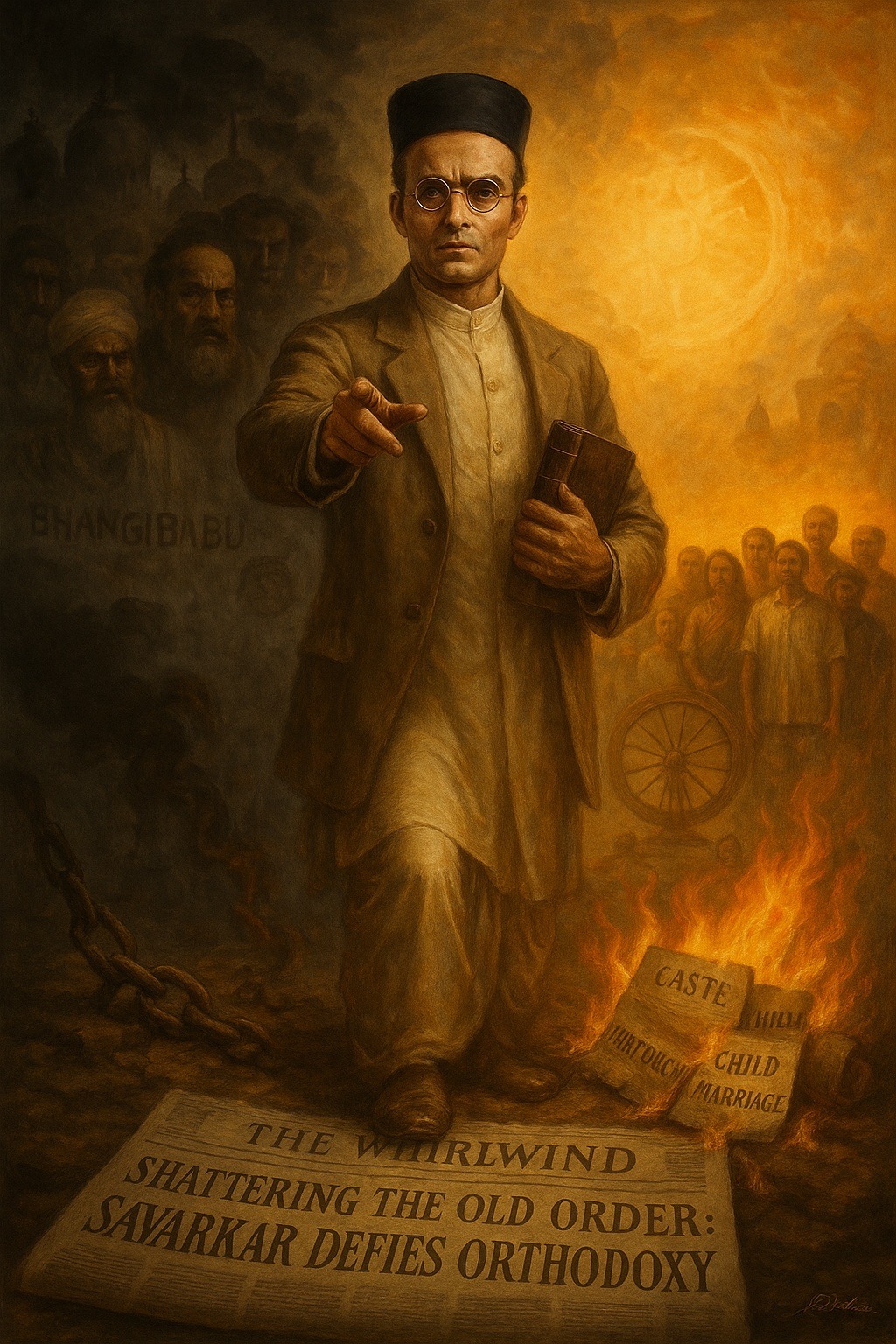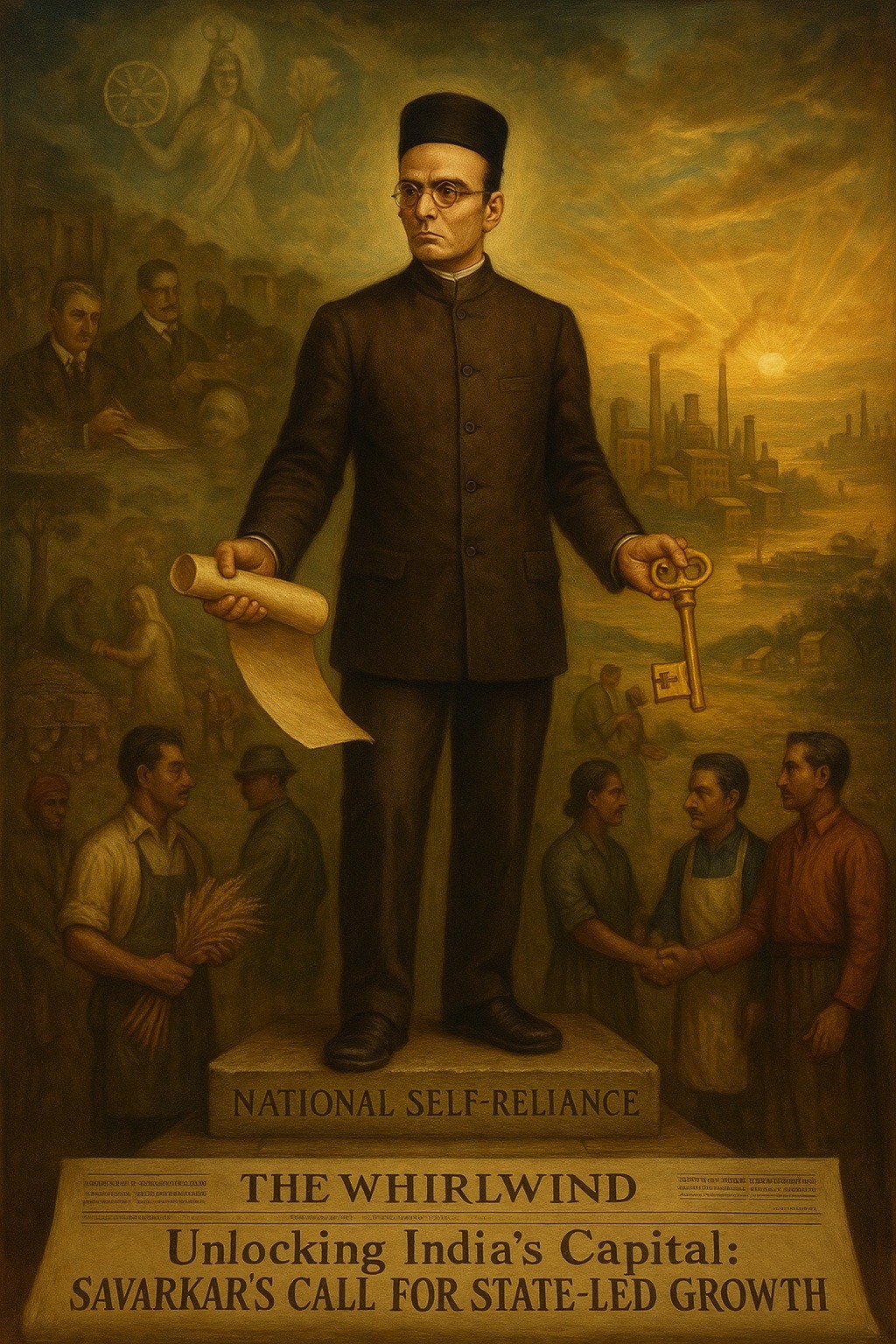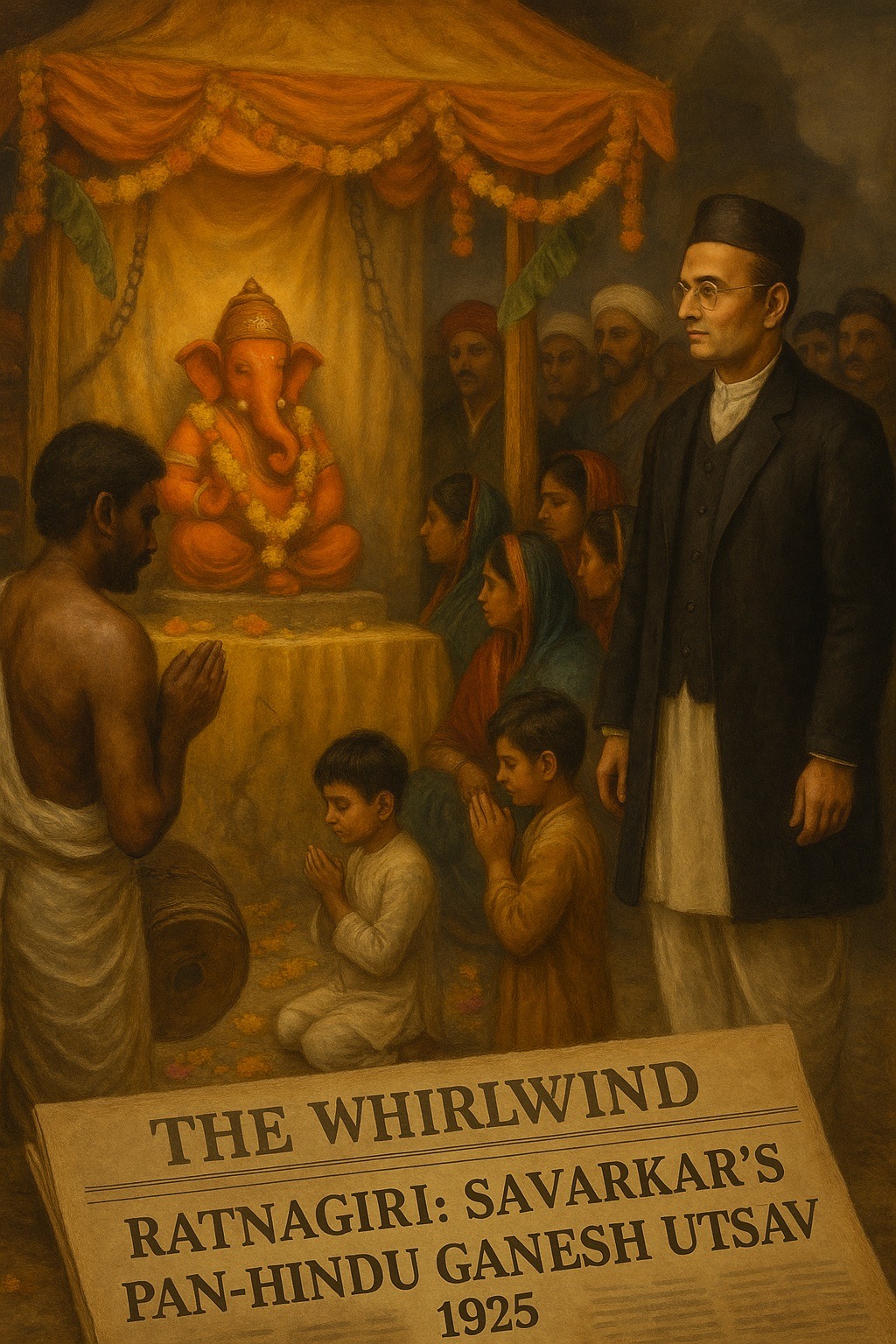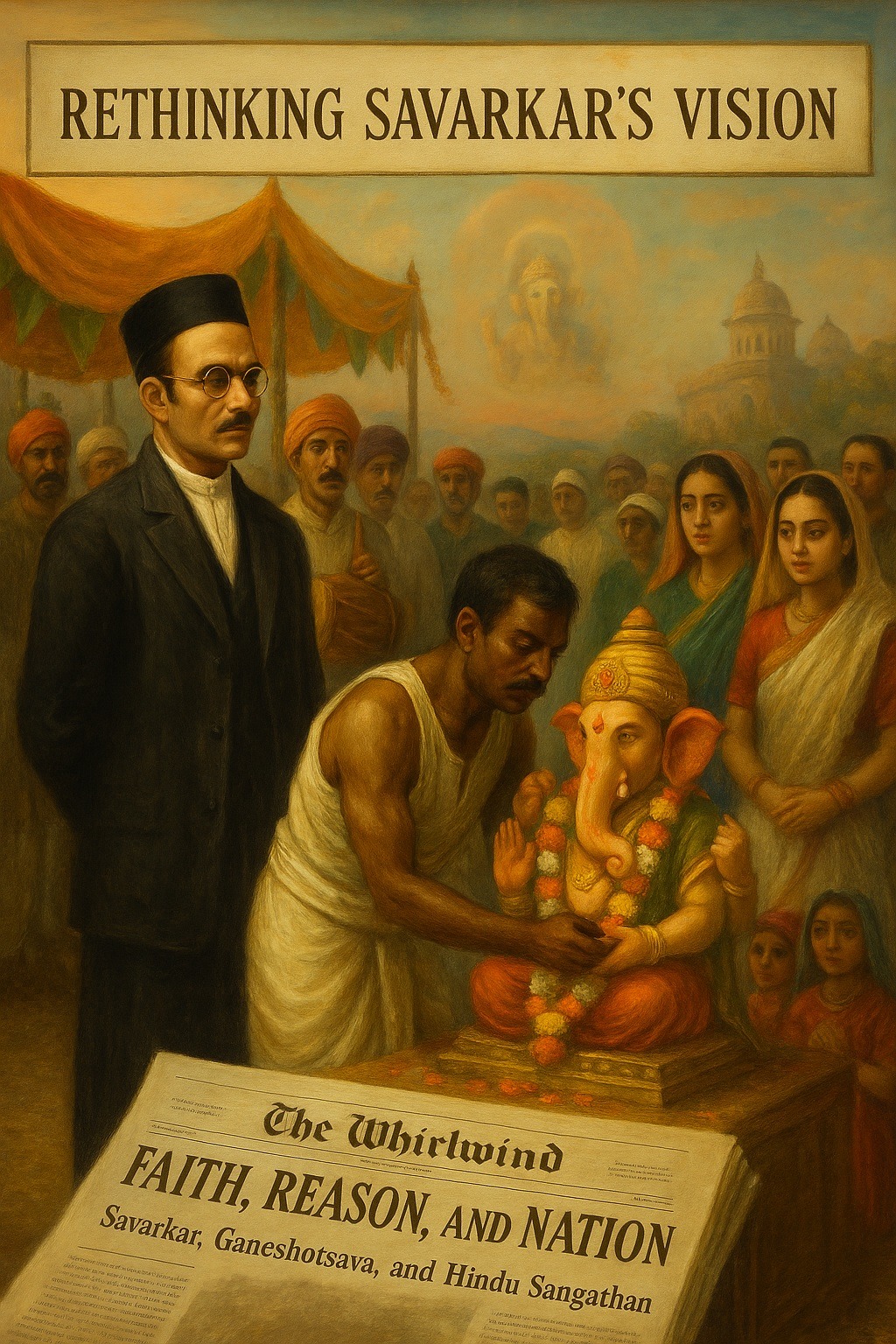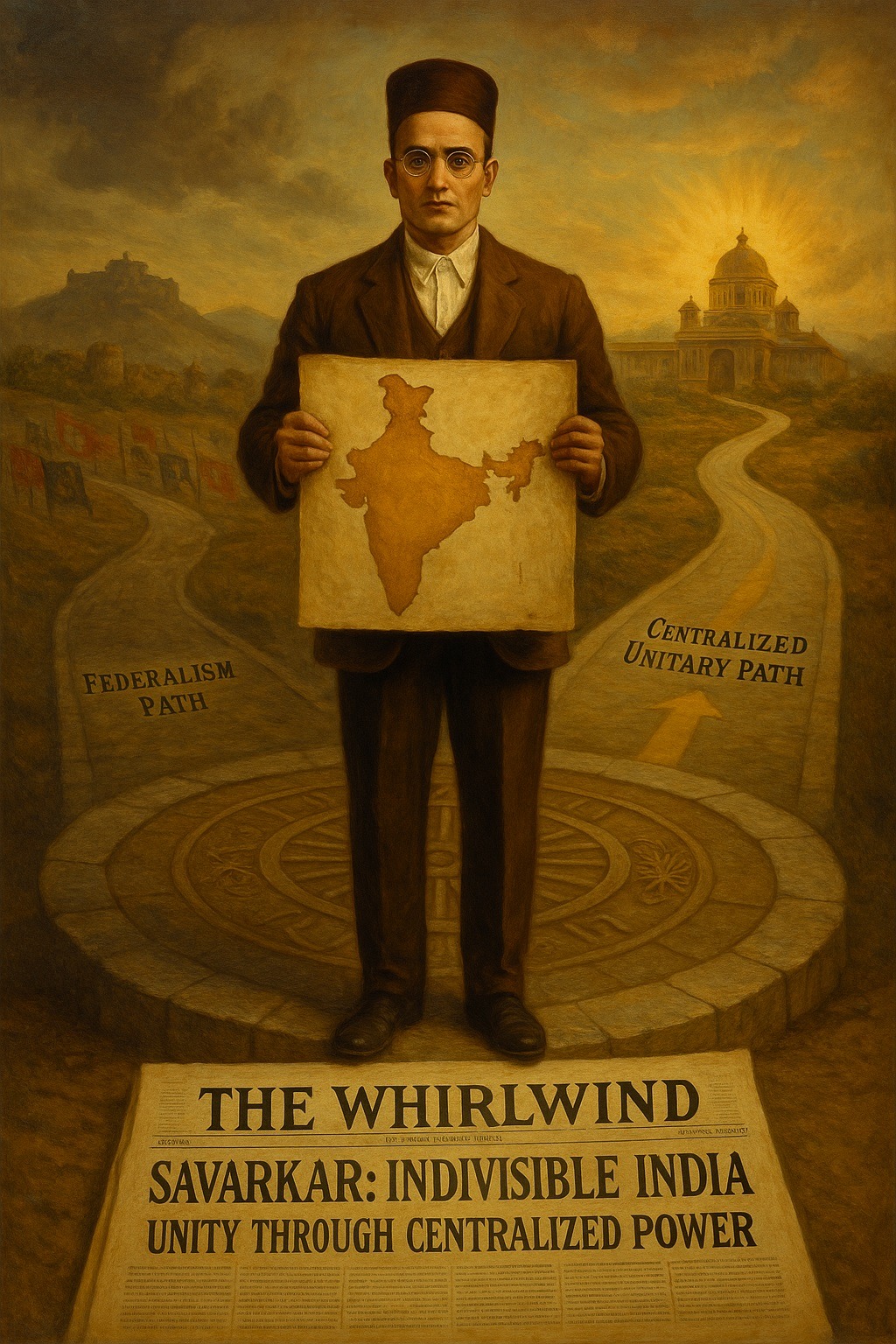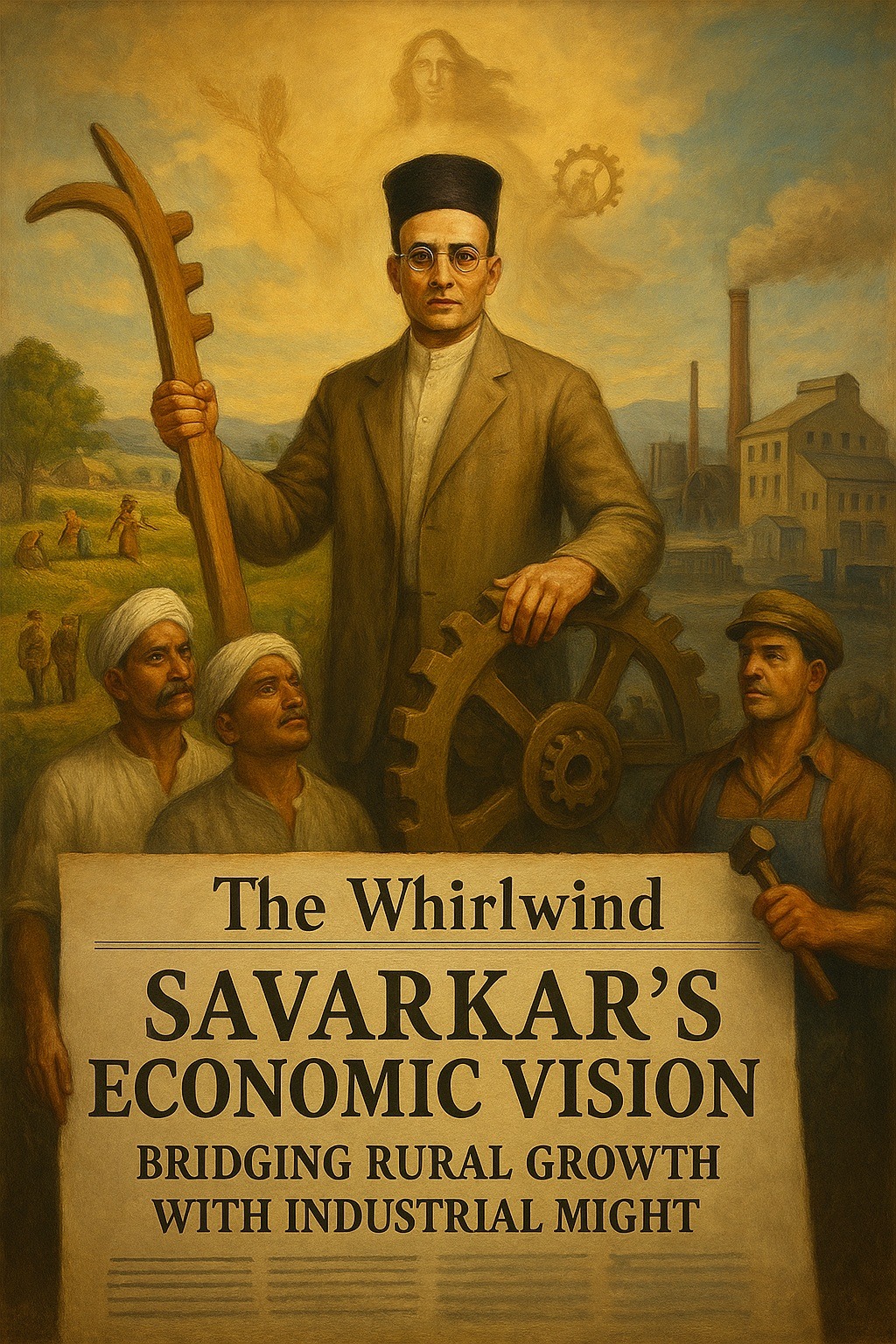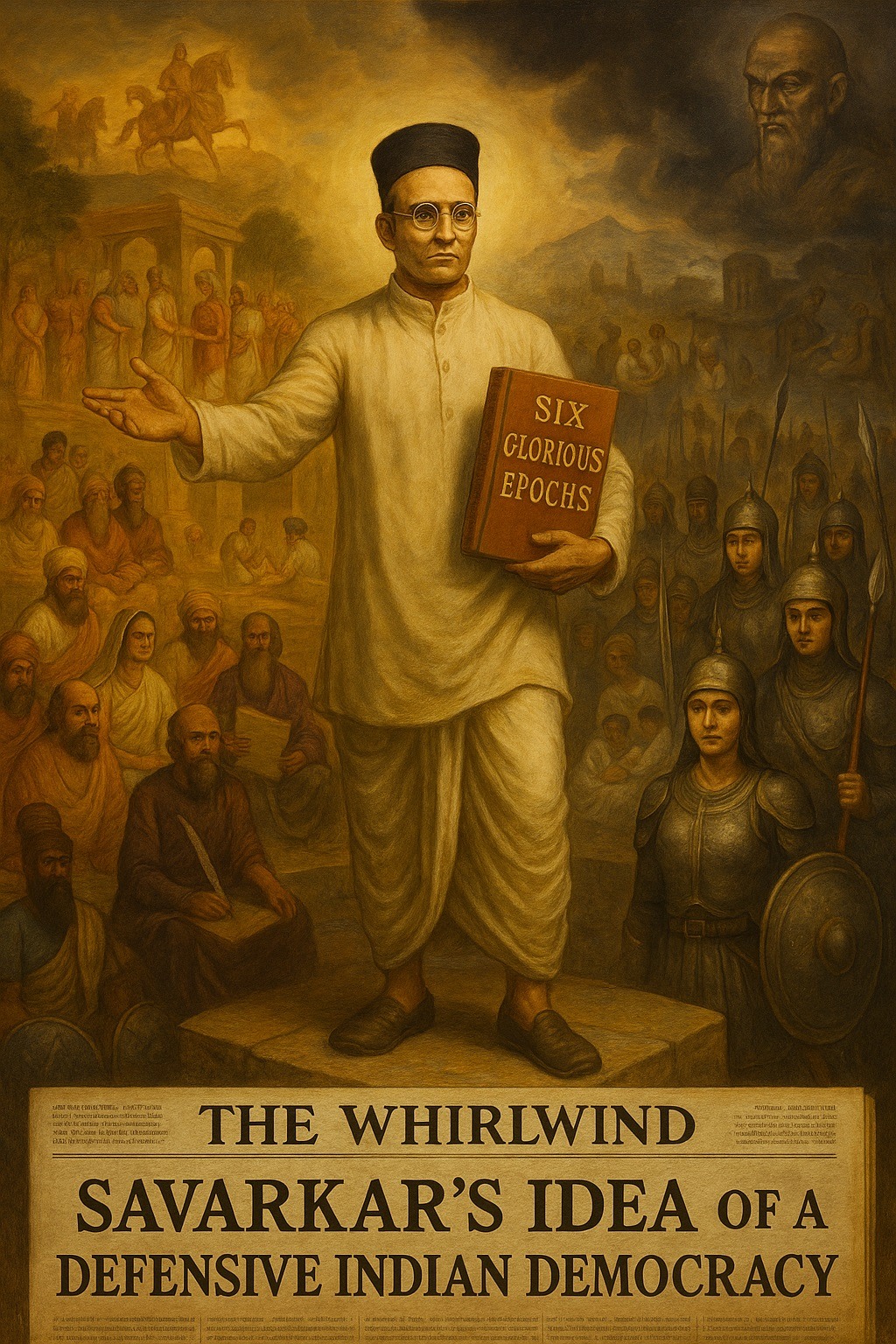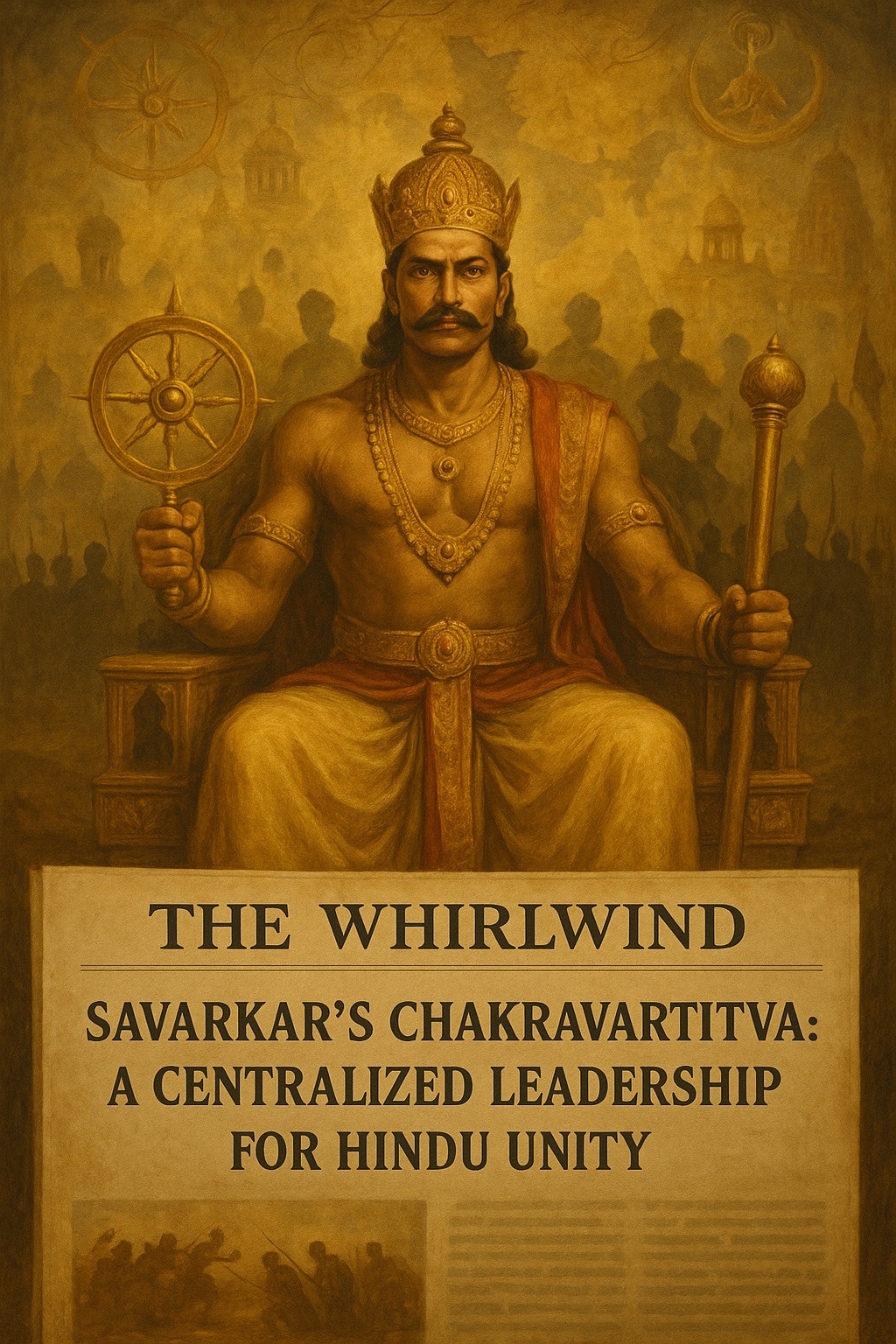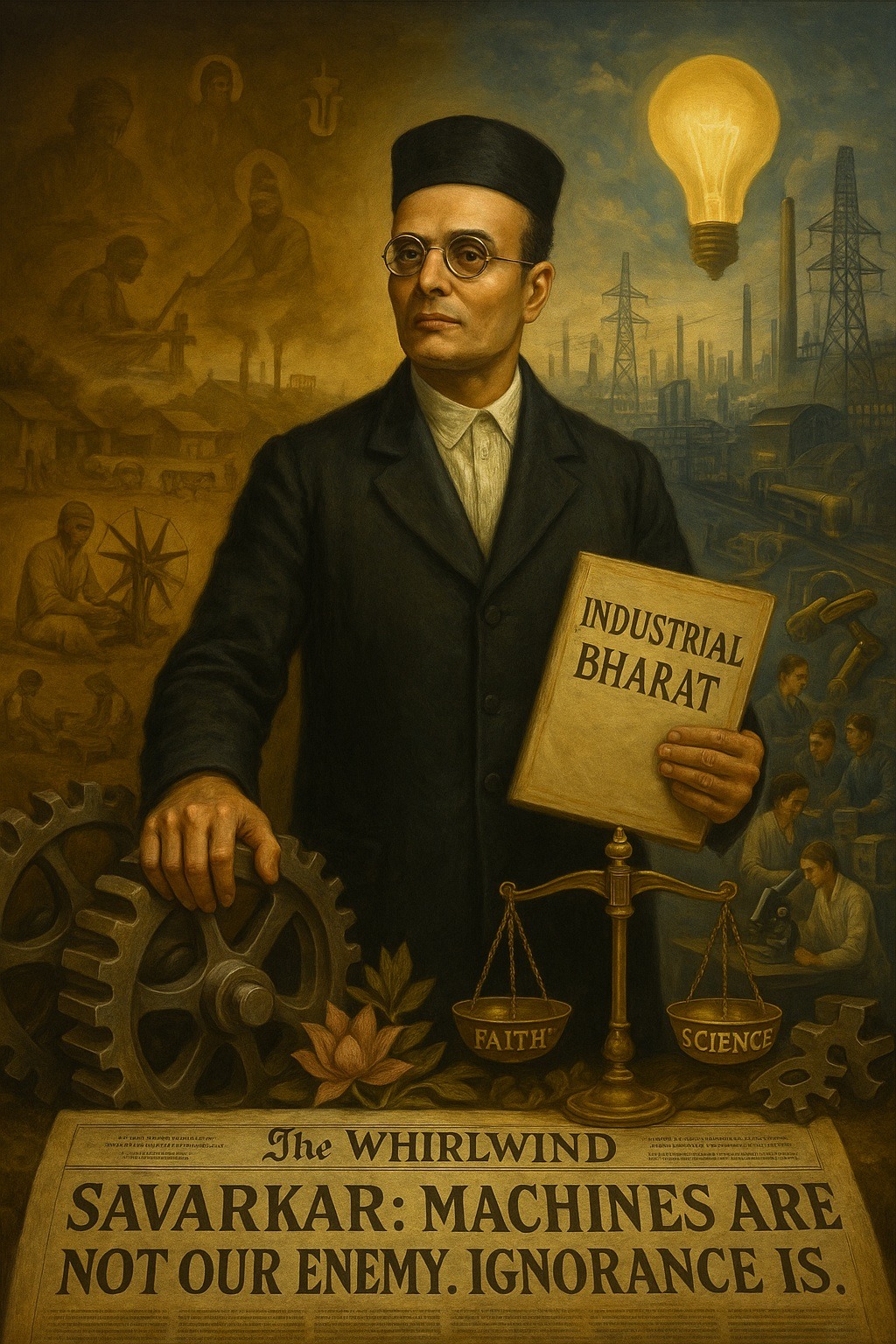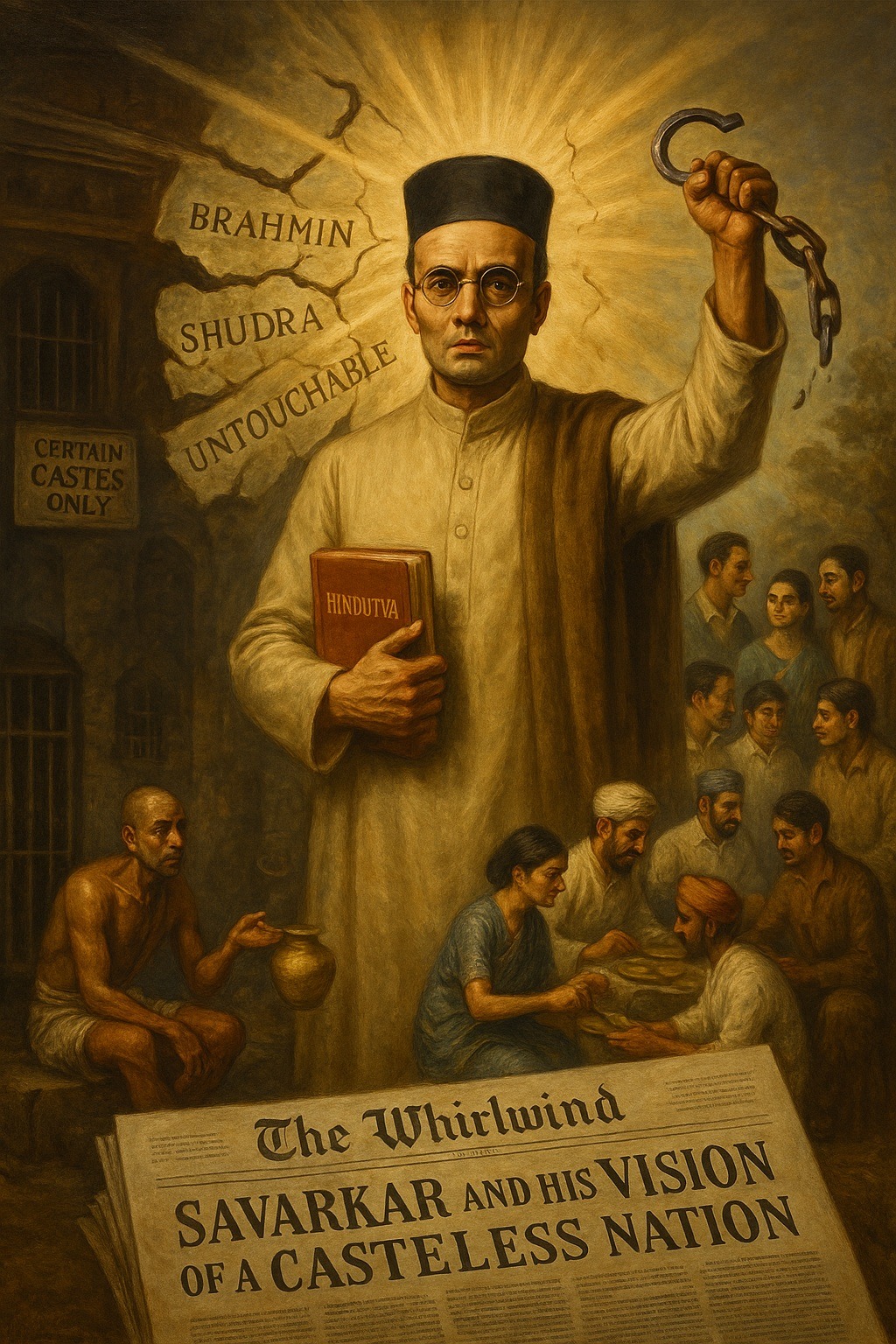Category: Dimensions of Hindutva
-
Economic Dimension of Hindutva, Part 8; Savarkar’s Economic Principles (4/13) The economic trajectory of a nation is often shaped by its government’s role in capital accumulation and investment direction. In colonial India, where capital largely remained in private hands, Vinayak Damodar (Veer) Savarkar saw an essential role for the state in fostering national industries. He…
-
Political Dimension of Hindutva, Part 9 In Vinayak Damodar (Veer) Savarkar’s view, the challenge of preventing particularistic interests has been one of the most significant hurdles both in the struggle for independence and in shaping the post-colonial Indian state. Movements like the Andhra Movement or the alignment of Bengal’s independence struggle with regional interests highlight…
-
Economic Dimension of Hindutva, Part 7; Savarkar’s Economic Principles (3/13) India’s economic foundation has long been rooted in agriculture, with rural communities playing a pivotal role in the nation’s progress. Vinayak Damodar (Veer) Savarkar, a visionary thinker and nationalist, recognized the indispensable contribution of the peasantry and the working class. He believed that empowering these…
-
Political Dimension of Hindutva, Part 8 The political ideas of Vinayak (Veer) Damodar Savarkar cannot be clearly assigned to a specific model of governance. However, with the transformation of British India into the independent Indian Union, democratic concepts increasingly became the focus of his thinking. In his final work, Six Glorious Epochs of Indian History,…
-
Political Dimension of Hindutva, Part 7 Vinayak Damodar (Veer) Savarkar’s political-religious vision is deeply rooted in an archaic worldview. A key element in his concept of an ideal governance structure for Hindus is the idea of “Hindu leadership through a strong hand.” This theme is recurrent throughout his writings, particularly through his admiration of the…
-
Economic Dimension of Hindutva, Part 6; Savarkar’s Economic Principles (2/13) Vinayak Damodar (Veer) Savarkar was not just a political thinker and revolutionary; he was also a strong advocate for technological progress. At a time when Indian society was grappling with the impact of modernization, Savarkar made a passionate appeal to his compatriots to welcome the…

